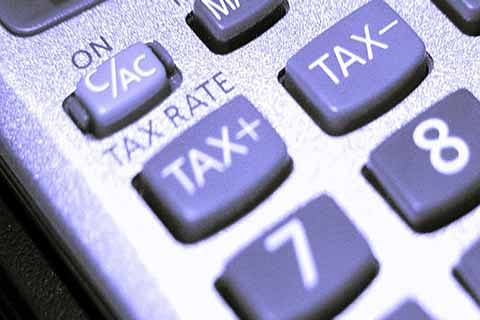It has become a precedence in pre-budget discussions tospeculate significant transformation in the tax structure. More particularly,salaried class individuals always expect tax concessions to experience ease ofliving.
But the budget 2019 presented by the union finance ministerNirmala Sitharaman didn’t bring any cheers to the salaried class. The budgetleft income tax slabs unchanged, to their disappointment.
However, most significant statement from the financeminister during the budget speech was when she called salaried class as ‘honesttaxpayers.’ But no hike in exemption limit and the government’s proposal foradditional cess on fuel has put these taxpayers at the receiving end. This waythey are denied ease of living facilities.
Before analyzing the budget 2019 in the context of salariedclass, let’s have a look at the nature of taxation and its impact on themindset of the society. Are taxes good or bad? Ask this question to anybody andyou will learn ‘taxes are bad’. For most of the people, paying any kind of taxis painful. So hatred of taxes is deeply ingrained in the society.
This kind of hatred by millions of people has establishedthe metaphors of taxation as a burden, an affliction, and an unfair punishment– all of which yearn for ‘relief.’ In fact the phrase ‘tax relief’ hasstrengthened the view of taxation as a misery or a burden on the people.
But there are some positive ‘untold facts’ of paying taxes.One of my acquaintance analogues paying of taxes to donations paid as acharitable contribution to the works being done by organsiations for thewelfare of the people and the society at large.
So, by the standard of this argument, when the government asan institution is dedicated to doing good works and promoting public interest,we should not oppose taxes which are basically funding the governmentactivities for public welfare. Precisely, taxes are good and we should feelelated for all the good our tax payments are doing. Contributing toward thepublic good through payment of taxes cannot be seen as a bad thing. This yardstick makes sense to call the taxes good.
But, when we look at the technical aspects of taxes, we findtaxes as our own dues that we pay to live in a democratic civilized society.Huge infrastructure in all sectors of economy like network of roads, buildings,power etc. available to all of us is in place because of the taxes paid by ourprevious clan of taxpayers. We as the current tax payers using all thisincredible infrastructure pay the dues to maintain as well as expand it.
But who promotes this positive and constructive concept oftaxes? Those who collect the taxes know only how to whip a taxpayer forciblyinstead of motivating him through education about importance of taxes in thedevelopment of society.
We have a breed of people in upper class of the society whoare not paying the taxes fairly. Middle and lower income class pay too muchwhile the wealthy pay too little. At the moment a few questions remainunanswered. How fair are taxes levied? Is the quantum o tax fairly shoulderedby various economic segments? Even the ways and means of tax collection bear aquestion mark on the fairness front. All of these have validated thecontroversies surrounding taxes in our society.
Meanwhile, coming back to Budget 2019, salaried class shouldhave been extended tax concessions. At the moment, this segment of taxpayersfeel that the tax deducted from their salary as income tax is not incommensuration with what the governmentoffers to them to ensure their ease of living. There is huge increase incertain unavoidable expenses. For example, the education cost is growing around20% every year and the medical inflation seems uncontrollable as healthcarecost is growing fast. Both these expenses are regular in nature and every timepaying higher cost for such facilities hardly leaves any money with thesalaried class to invest or save for future. And it’s here these honesttaxpayers are feeling the burden of tax.
Precisely, with expenses steadily rising, the spendingcapacity and the potential to save for the future has reduced considerably forthis class of people. Notably, a higher tax exemption has a direct relationwith increased investment and production, which translates into job creationand help to boost the economic cycle.
(The views are of the author and not that of the institutionhe works for)






